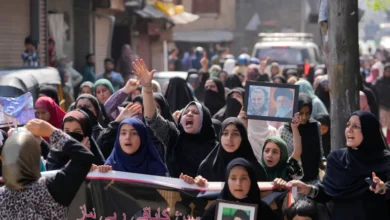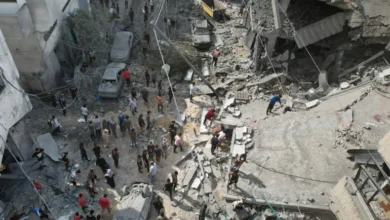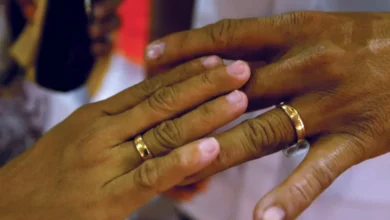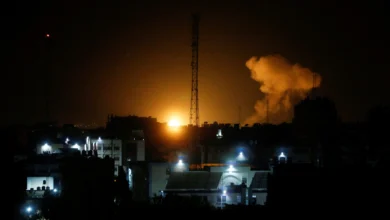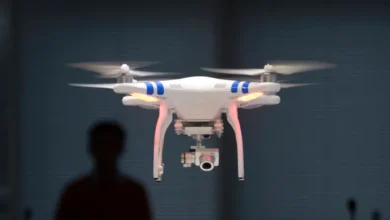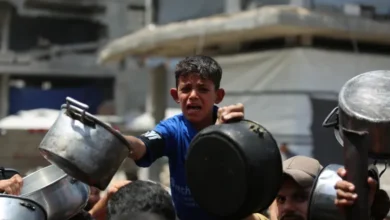Nairobi’s ‘Birdman’: Rescuing raptors on the streets of Kenya’s capital
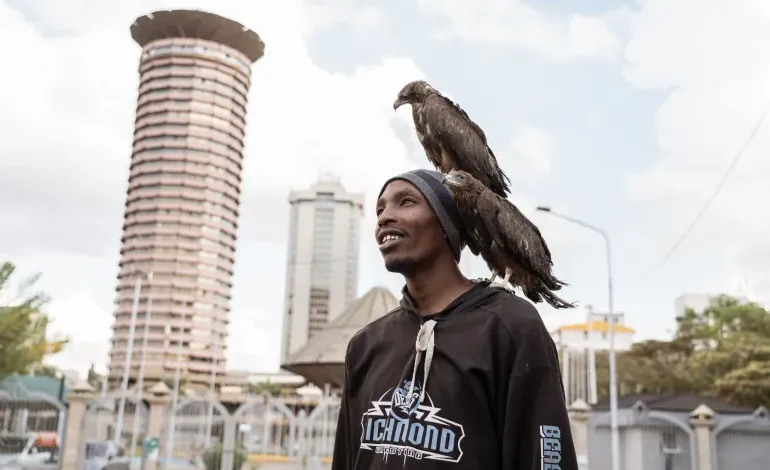
Shouts of “Birdman! Birdman!” trail 27-year-old Rodgers Oloo Magutha down a street in the centre of Kenya’s capital, Nairobi.
Vendors pause mid-sale, police glance away from traffic, and pedestrians abruptly stop to watch the man crowned with raptors on his head and shoulders. Children burst into giggles or shrink back in fear as crowds gather, phones raised like paparazzi.
Magutha has lived on Nairobi’s streets for years, one among the many children and youth asking for coins from hurried passersby. He blends in with this marginalised community in every way but one: the wild birds surrounding him.
“Many people feel unsafe when approached by us, they will even hide their phones,” Magutha says about the general public’s reaction to his street family.
“But when they see the birds, everything changes … They come over to pet them, take photos. Someone who looked angry a moment ago is suddenly smiling.”
Magutha has been rescuing and caring for birds since childhood, and for years on Nairobi’s streets. Yet he remained a largely obscure figure until last year, when thousands of young people flooded the central business district to protest against rising costs and government corruption.
Images of Magutha went viral, lifting him to local celebrity status as the “Nairobi Birdman”.
Still, few know the story behind the images – one of a life shaped by loss, adversity and an uncanny companionship with the birds he rescues, a connection that has sustained him through more than a decade living on the streets.
‘Bird enthusiast’
“I never go looking for the birds – they just come to me,” says Magutha, his beanie tilted under the weight of a kite perched on his head, another clinging to his shoulder.Magutha’s story began in Nakuru, a city in the Rift Valley known as a birdwatcher’s paradise.
“I used to sneak into Lake Nakuru National Park and sit by the water, watching flamingos, pelicans and so many other birds,” Magutha says. He would sometimes pet them, share food, and felt they trusted him when they stayed calm around him.
“That’s when I became a bird enthusiast,” he says. While other children hunted with slingshots, he persuaded them to protect birds instead. At home, he raised pigeons, chickens, ducks and even rescued a flamingo.
But at 13, his mother, who was raising him alone, died suddenly. Left without a stable home, he drifted between relatives before ending up on the streets. He survived in Nakuru, Mombasa and Nairobi by asking passersby for help or selling plastic bottles and scrap metal.
In each city, he says, street residents gathered around, drawn to him much like the birds. Over time, they became his family, giving him a sense of belonging.
But it was in Nairobi, near Kenya’s National Archives building in the central business district, a common gathering spot for street residents, that Magutha began to build his world.
